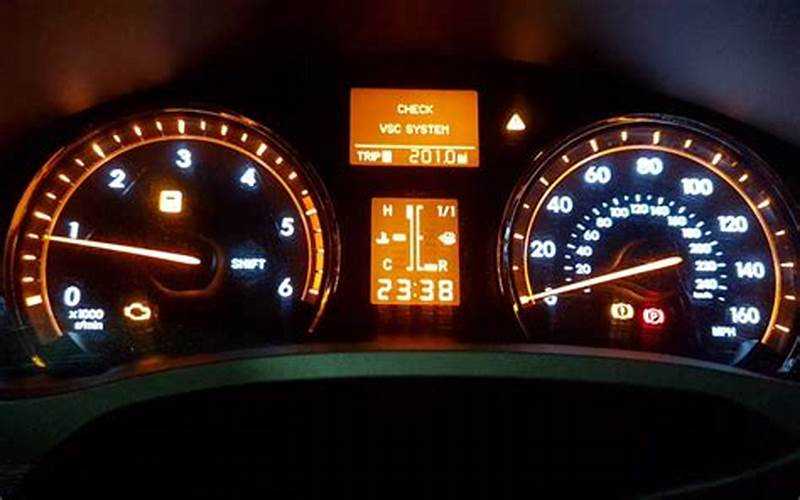
Source: bing.com
Greetings, Toyota Owner! We are here to provide you with a comprehensive understanding of the Toyota Camry Vehicle Stability Control (VSC) System. With its cutting-edge technology and advanced features, this system plays a vital role in ensuring your safety and stability on the road.
Introduction
The Toyota Camry VSC System is a sophisticated safety feature designed to prevent skidding and promote vehicle stability. It utilizes a combination of sensors, actuators, and control modules to monitor and correct any potential loss of control during hazardous driving conditions.
Equipped with the latest technological advancements, the VSC system constantly analyzes data from various sensors, including wheel speed, steering angle, and lateral acceleration. By comparing this information with the driver’s intended path, it can make necessary adjustments to individual wheels, engine power, and braking force to mitigate skidding and maintain stability.
The primary objective of the Toyota Camry VSC System is to enhance your overall driving experience by reducing the risk of accidents and improving maneuverability. Let’s explore its strengths and weaknesses in detail:
Strengths of the Toyota Camry VSC System







Weaknesses of the Toyota Camry VSC System







Toyota Camry VSC System: Technical Specifications
| Component | Description |
|---|---|
| Sensors | Wheel speed, steering angle, lateral acceleration |
| Actuators | Brake pressure adjustment, engine power distribution |
| Control Module | Centralized unit for data analysis and control |
| Integration | Anti-lock Braking System (ABS), Traction Control System (TCS) |
| Operation | Automated intervention without driver input |
Frequently Asked Questions (FAQs)
1. How does the Toyota Camry VSC System work?
The VSC System utilizes sensors to monitor vehicle dynamics and makes necessary adjustments to individual wheels, engine power, and braking force to prevent skidding and maintain stability.
2. Can the VSC System be turned off?
Yes, the VSC System can usually be turned off using a dedicated button or through the vehicle’s settings. However, it is recommended to keep it enabled for optimal safety.
3. Does the VSC System improve fuel efficiency?
While the VSC System primarily focuses on safety and stability, it indirectly contributes to fuel efficiency by optimizing traction and reducing unnecessary wheel spin.
4. Can the VSC System prevent all accidents?
The VSC System significantly reduces the risk of accidents caused by skidding or loss of control. However, it cannot prevent accidents caused by external factors or reckless driving.
5. Is the VSC System reliable on slippery surfaces?
Yes, the VSC System excels in improving traction on slippery surfaces like snow, rain, or gravel, making it highly reliable in such conditions.
6. Can the VSC System be retrofitted in older Toyota Camry models?
Depending on the specific model and compatibility, it may be possible to retrofit the VSC System. Consult with a Toyota dealership for accurate information.
7. Does the VSC System require regular maintenance?
While the VSC System itself does not require specific maintenance, it is essential to follow the vehicle’s recommended maintenance schedule to ensure overall system integrity.
Conclusion
In conclusion, the Toyota Camry VSC System is a remarkable safety feature that enhances your driving experience by providing stability and control during hazardous situations. With its advanced technology, real-time monitoring, and seamless integration with other safety systems, it offers significant strengths in improving traction, stability, and driver confidence.
However, it is important to acknowledge its limitations, including reduced effectiveness on ice, reliance on sensors, and the need for responsible driving practices. By understanding these strengths and weaknesses, you can harness the full potential of the VSC System while ensuring a safe and enjoyable journey.
We encourage you, as a Toyota Owner, to prioritize your safety and take full advantage of the Toyota Camry VSC System. Embrace the peace of mind it offers and drive with confidence, knowing that you have a reliable safety companion on board.
Disclaimer: The information provided in this article is for general informational purposes only. Always refer to the vehicle’s user manual and consult with professionals for accurate and specific guidance.
 MyVans Your Vehicle Solution
MyVans Your Vehicle Solution